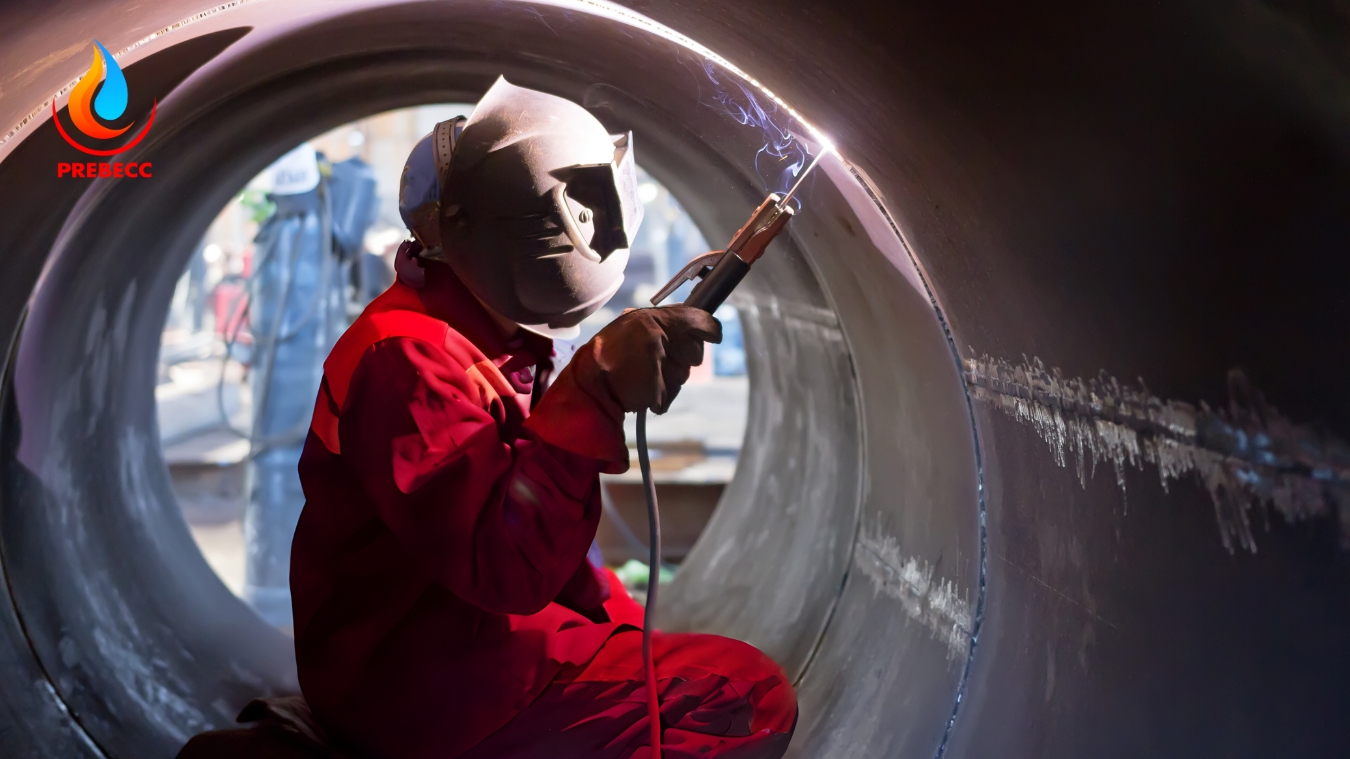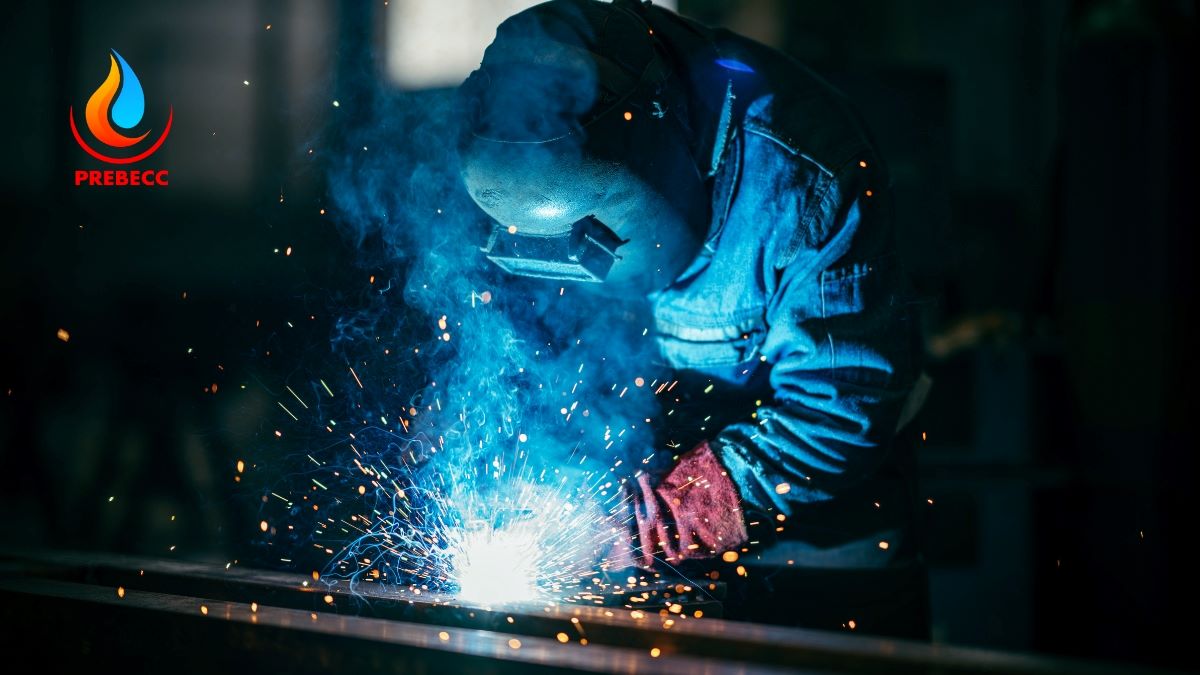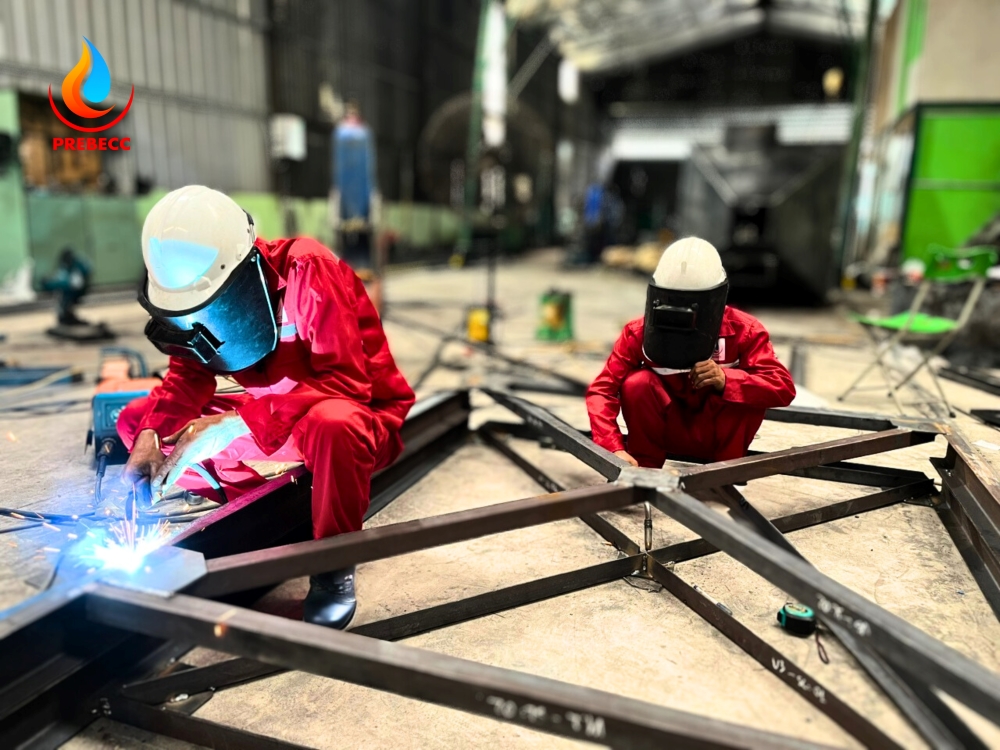In the heavy industry sector, especially in the fabrication and installation of pressure equipment, a 6G welding certification is considered the pinnacle of welding expertise. This certification is not only a testament to superior skill levels but also a mandatory requirement for projects demanding stringent quality standards. At Prebecc, we take pride in our team of highly trained engineers and welders who hold international certifications such as TUV, PROBAD, and the highest-level welding credentials.
1. What is 6G Welding Certification?
The 6G welding certification represents the highest standard in welding, recognized globally for its rigorous evaluation process and complex technical requirements. It is not just a skill endorsement but also proof of the welder’s professionalism and ability to handle the most challenging welding positions.
6G welding involves a specific technique where the material is fixed at a 45-degree angle, requiring the welder to maneuver in all directions, including horizontal, vertical, and overhead. This technique is widely applied in industries demanding high precision, such as oil and gas, energy, and boiler manufacturing.

2. The evaluation process for 6G Welding Certification
The evaluation process for obtaining a 6G welding certification involves several stringent stages.
- Theoretical Assessment: Candidates must first pass a written test focusing on key welding concepts, such as identifying joint types (butt, fillet, corner, lap joints), selecting the appropriate welding method (MIG, TIG, SMAW, etc.) for specific materials, and adhering to safety standards.
- Practical Test: The practical examination is the most demanding part, requiring candidates to execute welds in the 6G position. Commonly used materials include carbon steel or stainless steel, which are fixed and cannot be rotated. Candidates must produce welds that are consistent, free from defects such as porosity or surface cracks.
- Quality Inspection: After completing the practical test, the welds undergo rigorous quality evaluations. Non-destructive testing (NDT) methods, such as X-ray or ultrasonic inspection, assess internal weld integrity, while mechanical tests evaluate strength and elasticity. Only candidates who pass all stages are awarded the 6G welding certification by accredited organizations.

3. Challenges in achieving 6G Welding Certification
Attaining the 6G welding certification – the highest level of welding proficiency – is no easy feat. The 6G position demands exceptional focus, precision, and substantial hands-on experience. It often requires 3 to 5 years of training at specialized institutions.
Welding Certification Levels:
Basic Levels (1G and 2G):
These introductory levels familiarize welders with fixed positions like flat (1G) and horizontal (2G). The focus is on mastering equipment use and creating simple yet durable welds.
Intermediate Levels (3G and 4G):
Welders are trained to perform vertical (3G) and overhead (4G) welds, enhancing their ability to control temperature, speed, and weld quality under more challenging conditions.
Advanced Level (5G):
At this level, welders work on fixed pipes in various positions, preparing them for more complex welding tasks.
6G Level:
The most comprehensive welding test, requiring proficiency in welding pipes in all positions and angles. The welds must meet stringent requirements for quality, durability, and safety, particularly in industries like oil and gas, energy, and chemicals.
Additional Challenges: The cost of training and certification is significant, as courses and tests for 6G welding often require substantial financial investment. Moreover, real-world working conditions for 6G-certified welders can be extremely demanding, involving high temperatures, intense pressure, or confined spaces, requiring outstanding physical endurance and resilience.

4. Prebecc’s Expertise and Certifications
At Prebecc, we boast not only skilled welders but also a team of expert design engineers, supervisors, and manufacturing managers trained to the highest standards. Our personnel are certified by reputable organizations such as TUV Rheinland and PROBAD.
- Design Engineers: Ensure all blueprints and plans meet the most stringent technical requirements.
- Supervisors: Monitor every stage of execution to guarantee quality and adherence to deadlines.
- Fabrication and Installation Managers: Oversee every detail to ensure safety and precision.

Thanks to this cohesive teamwork, Prebecc has successfully completed numerous large-scale industrial projects, earning the trust of clients worldwide. We are committed to delivering optimal solutions that meet the highest standards and ensure long-term operational efficiency for our customers.
>> CONTACT PREBECC NOW FOR DETAILED CONSULTATION ON OUR SERVICES!
HOTLINE: (+84) 7 08 09 1033
EMAIL: info@prebecc.com
